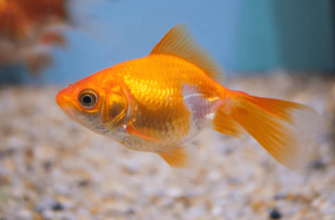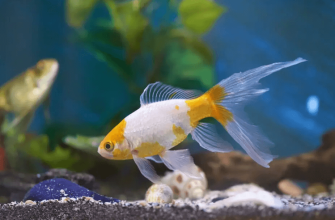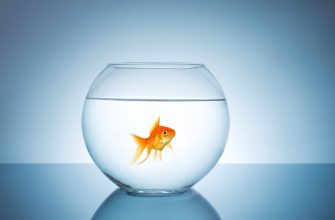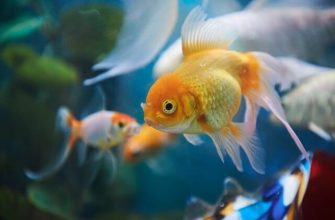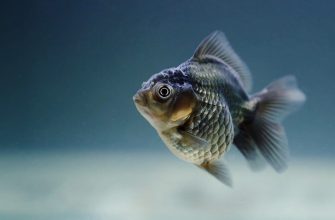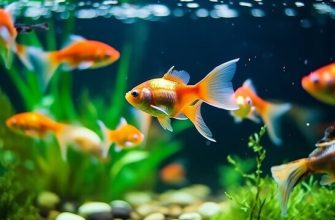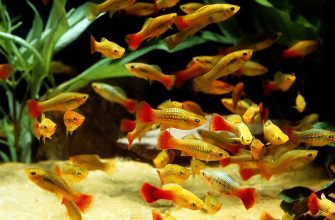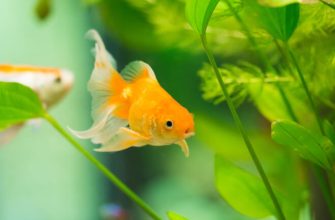Do goldfish bite? It can be a perplexing question, but generally, they don’t. Their small mouths don’t have sharp teeth, so they won’t cause any harm. They may nibble at their owners out of curiosity or confusion, though. In rare cases, goldfish may bite if they’re stressed or feeling territorial.
To prevent this, maintain an appropriately-sized tank with enough space for them to swim freely. Crowded conditions can lead to stress and aggression. Provide hiding spots and vegetation to create a peaceful environment and reduce conflict.
Also, feed them a well-balanced diet full of nutrients like pellets or flakes. This will help keep them healthy and reduce stress-related behaviors.
Finally, observe and interact with your goldfish regularly. Identify any signs of distress early on before they escalate into biting. Offer them floating toys and mirrors for mental stimulation.
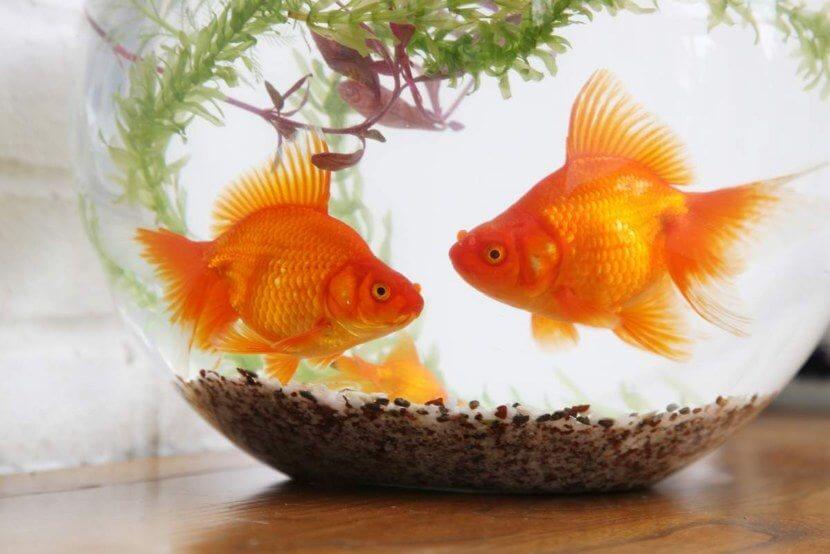
Goldfish Behavior
Goldfish, like any other aquatic creatures, exhibit various behaviors that are interesting to observe. Understanding goldfish behavior can help fish enthusiasts provide a suitable and enriching environment for their pet fish. Here, we will explore the different aspects of goldfish behavior through a comprehensive examination of their actions and reactions.
| Behavior | Description |
|---|---|
| Feeding | Goldfish feed on a variety of foods, including flakes, pellets, and live or frozen options. They tend to eat small amounts frequently throughout the day. |
| Swimming | Goldfish are active swimmers and enjoy exploring their environment. They can swim at different depths, using their fins to maneuver gracefully. |
| Social behavior | Goldfish are social creatures and can live harmoniously with other compatible fish. They exhibit behaviors like schooling and hierarchy. |
| Reproduction | Goldfish engage in a spawning ritual during breeding season. Male goldfish chase females, nudging their abdomen to stimulate egg release. |
Goldfish also have unique behaviors not typically found in other fish species. For example, some goldfish can be trained to perform simple tricks or respond to their owners. These intelligent creatures can learn to recognize their caretaker and display excitement when being fed or interacted with.
To keep goldfish healthy and happy, consider the following suggestions:
- Provide ample space: Goldfish require enough room to swim freely, so it’s crucial to provide an adequately sized tank or pond.
- Maintain water quality: Regularly check and maintain the water parameters, including temperature, pH, and ammonia levels, to ensure a clean and suitable habitat for the fish.
- Offer a varied diet: Supply a balanced diet rich in nutrients, including high-quality fish food and occasional treats like freeze-dried or live foods.
- Regular monitoring and health checks: Keep an eye on the goldfish for signs of illness or distress. Promptly address any issues by consulting a veterinarian with expertise in fish care.
By understanding goldfish behavior and providing a suitable environment, you can ensure the well-being and happiness of these fascinating aquatic pets.
Goldfish may seem innocent, but they’re secretly plotting world domination… from the comfort of your fish tank.
Normal behavior of goldfish
Goldfish are special. Fascinating and intriguing, their swimming patterns are graceful. Plus, they love company and form schools. Also, they’re curious and investigate things by nudging or nibbling them. Impressive! They even adapt to different conditions. To keep them healthy, give them plenty of space to swim and explore. That’ll let them show off their natural behaviors.
Key factors that influence goldfish behavior
Goldfish behavior is impacted by many important factors. Understanding these can help owners give their aquatic pets the best care. Such factors include:
- Water Quality: Clean and filtered water is best for goldfish. Poor water quality can lead to stress and abnormal behavior.
- Tank Size: A spacious tank lets goldfish swim freely. Crowding can cause stress and aggression.
- Temperature: Goldfish prefer temperatures between 65-75 degrees Fahrenheit. Fluctuations outside this can affect their behavior and health.
- Social Interaction: Goldfish are social creatures and need companionship. Lack of it can lead to depression.
- Diet: A balanced diet is essential for goldfish behavior. Poor nutrition can cause lethargy or aggression.
Light intensity, presence of hiding spots, and water chemistry also shape goldfish behavior. Amazingly, research shows they can remember up to three months!
Armed with this knowledge, owners can create an environment that supports the well-being and natural behavior of their pet goldfish. By understanding these factors, they can make sure their goldfish thrive in captivity.
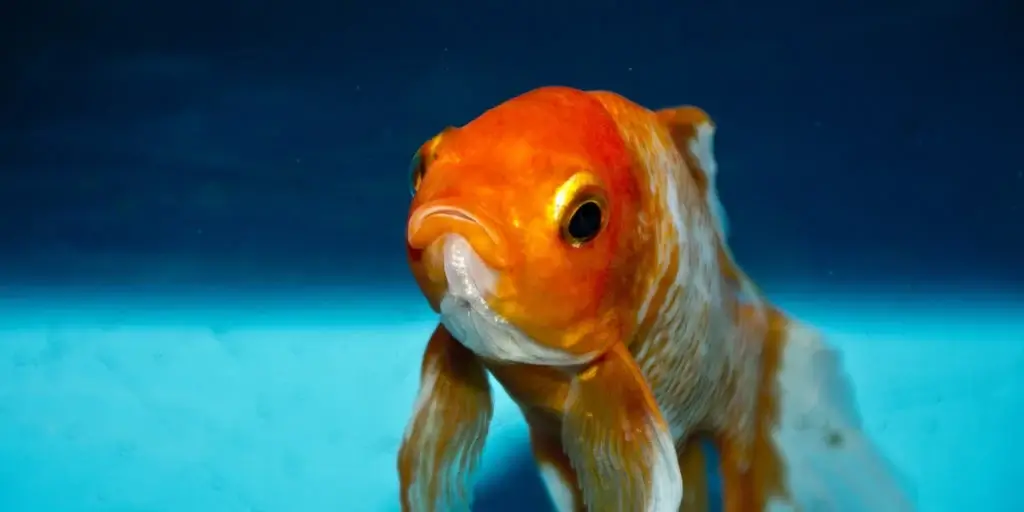
Do Goldfish Have Teeth?
Goldfish, like many other fish species, do have teeth. However, their teeth are unlike the teeth humans have. Goldfish have teeth called pharyngeal teeth, located at the back of their throat. These teeth are not used for chewing but rather for grinding food. They use them to crush and grind their food, which primarily consists of plant matter, including algae and other aquatic vegetation. It is interesting to note that goldfish constantly grow new teeth as the old ones wear down or fall out. This ensures that they can continue to effectively feed on their diet.
In addition to their pharyngeal teeth, goldfish also have tiny tooth-like structures called papillae on their lips and gums. These structures help them grip and manipulate food while eating. Goldfish primarily feed by sucking in water and then expelling it through their gills, which pushes the food into their mouths. The combination of their pharyngeal teeth and papillae allows them to break down and extract nutrients from their food efficiently.
Goldfish teeth and feeding habits are fascinating. Unlike traditional teeth, their dental structures are uniquely adapted to their specific diet and feeding methods. This adaptation showcases the intricate nature of evolution and the amazing diversity of life underwater.
As intriguing as goldfish teeth are, there is a well-known tale that highlights their unusual feeding behavior. Legend has it that a group of goldfish were brought to a pond surrounded by stone statues. Over time, the goldfish began nibbling at the stone statues, creating distinctive marks on them. This story serves as a testament to the powerful grinding capabilities of goldfish teeth, leaving a lasting impression on both the statues and our understanding of these remarkable fish.
Goldfish mouths may be small, but don’t underestimate their potential–they may not bite, but they can definitely chew up your hopes of getting through this article without a pun.
Anatomy of a goldfish’s mouth
A goldfish’s mouth holds amazing features. Adapted for its aquatic life, it has particular elements that help it function. Teeth for chewing, gills for breathing, and a tongue for manipulating food – all these make up its anatomy.
Surprisingly, goldfish have teeth in their throat! This structure allows them to grind their food quickly. A marine biologist saw how a goldfish used its anatomy to survive when stuck in shallow waters. It used its tongue to force water through its gills and its tiny teeth in its throat to eat surface insects until it was rescued.
Goldfish’s mouth is a beautiful example of adaptation and survival. These creatures show us the genius of nature and the various forms of life. Do goldfish need teeth? No, but it’s nice they have something to smile about when you come with their fish flakes!
The purpose of goldfish teeth
Goldfish teeth are not just for looks! These needle-like structures help them eat and process food. They grow throughout the fish’s life, so they can always chew effectively.
Goldfish don’t have molars or incisors like us – they have special grinding teeth at the back of their throat. These help break down harder food.
A man once had a pet goldfish with dental issues. He took it to a vet that does fish dentistry! The vet treated the fish’s teeth.
This showed the importance of oral hygiene for aquatic pets. Goldfish teeth are vital for their feeding process and overall health.
Goldfish may not have teeth, but they know something about human biting habits!
Do Goldfish Bite Humans?
Goldfish Behavior: Biting Humans Analyzed
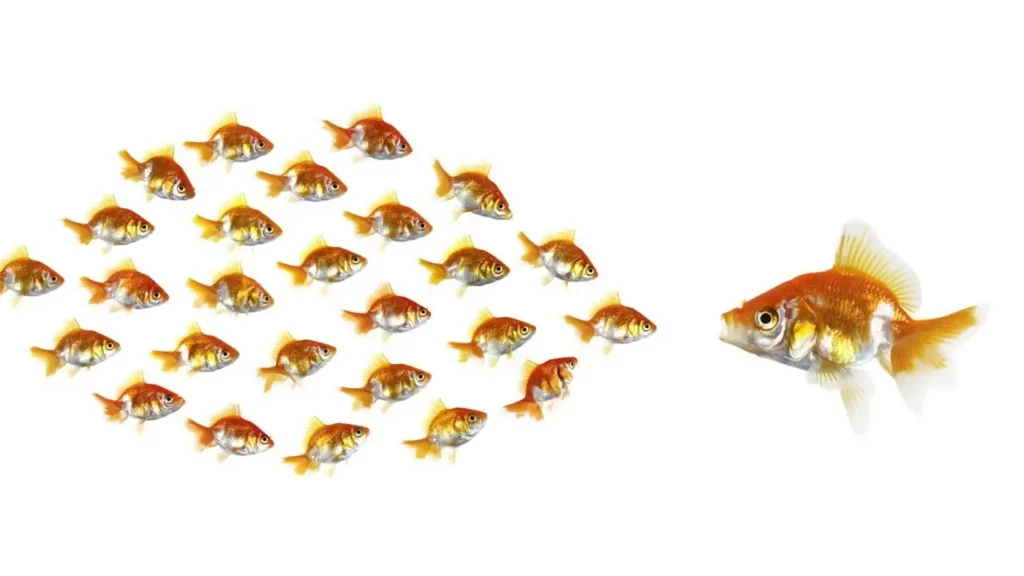
Goldfish are typically peaceful and docile creatures, but can they bite humans? While it is rare, goldfish may exhibit biting behavior, especially when they feel threatened or stressed. Being omnivorous, with small rows of teeth, goldfish are capable of nipping or nibbling on human skin, although their bites are usually not painful or harmful. It is important to ensure a calm and safe environment for goldfish to prevent aggressive behavior.
Additionally, when handling goldfish, it is crucial to use gentle movements and avoid sudden gestures that may trigger a defensive response. Providing a well-maintained tank with appropriate food and companions can also help promote peaceful behavior in goldfish. Understanding their natural instincts and providing proper care is essential to fostering a harmonious relationship between goldfish and their human counterparts.
In relation to their biting behavior, goldfish also possess a remarkable ability to recognize their owners. They can remember faces and associate them with positive experiences, such as feeding time. This unique trait adds to the enchanting allure of keeping goldfish as pets. So next time you approach your goldfish, remember that they may not just bite but also remember the bond you share.
True Fact: According to the Marine Depot, goldfish have been known to live up to 20 years when provided with proper care and conditions.
Watch out for those goldfish with a hidden agenda, because when they bite, they’re making a statement…and it’s not a friendly one.
Instances when goldfish may bite
Goldfish are not known for biting humans. But there are cases where they can show aggressive behavior and nip. Inadequate feeding or malnutrition can be the reason. They may bite when searching for food, however, goldfish don’t have teeth so it’s more of a ‘nibble’.
To stop goldfish from biting, feed them high-quality fish food. Ensure there’s enough space in their aquarium to swim freely. Also, do regular maintenance of the tank, like water changes and filtration. That way, the fish will stay healthy and happy.
Understanding why goldfish may bite
Goldfish are usually peaceful, but may bite. To understand why, you need to know their natural instincts and how their environment affects them. Goldfish have a social hierarchy and can fight for food and space. Overcrowded tanks or ponds can cause stress and biting.
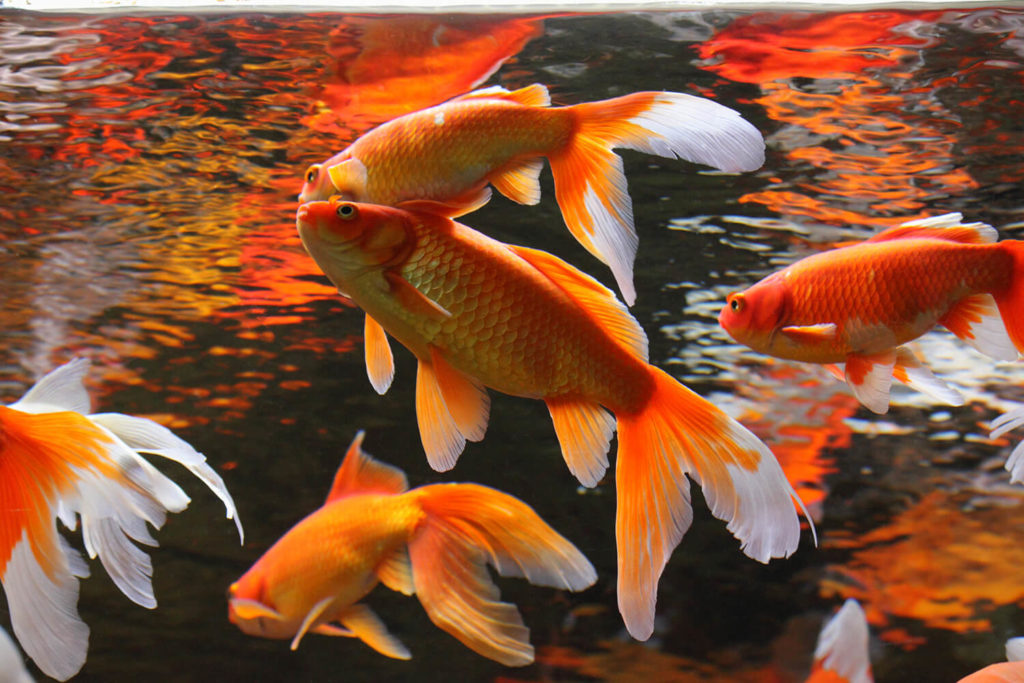
Nutrition is important. Insufficient or wrong food can lead to biting. So make sure to offer a balanced diet. Genetics might be at play too. Some breeds are more aggressive than others.
Goldfish may bite humans too. If you put your fingers near their mouths when feeding or interacting with them, they may think it’s a threat and defend themselves by biting.
To stop goldfish biting, provide the right environment and nutrition. And if all else fails, consider chainmail gloves!
How to Prevent Goldfish Bites
Goldfish are generally not known for biting humans, but it is important to take preventive measures to minimize the risk of accidental bites. Here are some steps you can follow to prevent goldfish bites:
- Maintain Proper Feeding Habits: Goldfish are more likely to nip or bite if they associate your hand with food. Avoid feeding them directly with your fingers to prevent accidental bites.
- Use Feeding Tools: Instead of hand-feeding, use feeding tools such as a net or a feeding ring to provide food to your goldfish. This will create a physical barrier between your hand and the fish, reducing the chances of getting bitten.
- Avoid Sudden Movements: Goldfish tend to be startled by sudden movements, which can make them defensive and more likely to bite. When interacting with your goldfish, try to move slowly and avoid any abrupt gestures that may startle or stress them.
- Maintain a Clean Environment: Poor water quality can lead to stress and aggression in goldfish, increasing the risk of biting behavior. Regularly clean and maintain their tank or pond to ensure a healthy and stress-free environment for your fish.
- Provide Hiding Places: Goldfish like to have hiding places in their environment. By providing plants, rocks, or other suitable decorations, you can create hiding spots where your goldfish can retreat if they feel threatened. This can help reduce their stress levels and potential biting behavior.
Remember, goldfish bites are rare and usually occur in cases where the fish feels threatened or stressed. By following these preventive measures, you can ensure a safe and enjoyable interaction with your goldfish.
A true fact: Goldfish have been kept as pets for over a thousand years. They were first domesticated in ancient China, where they were highly prized for their vibrant colors and graceful swimming.
Setting up an ideal home for your goldfish is like creating a luxurious hotel for a tiny, water-dwelling diva.
Creating a suitable environment for goldfish
Goldfish – tiny and vibrant – need the right environment to stay healthy and happy. Let’s explore how to create the perfect habitat to prevent goldfish bites.
Firstly, consider the size of the tank or pond. Ample space is essential to give your goldfish plenty of room to swim. Make sure the water volume is enough for them – no overcrowding!
Secondly, regularly test the water quality. Check the pH levels and ammonia content to stay within an appropriate range. A good filtration system is key to removing harmful substances and keeping the water clear.
Thirdly, provide hiding spots for your goldfish. Plants, rocks, and ornaments will give them a sense of security. Plus, live plants make the tank or pond look pretty while oxygenating and filtering the water.
And finally, remember that goldfish are social creatures. Consider introducing compatible tank mates to give them company.
To create a safe and happy habitat, think about the size, water quality, hiding places, and companionship of your goldfish. With love and care, you’ll provide an environment that prevents goldfish bites and ensures their well-being. Feed them like it’s their last meal – they won’t want to bite you then!
Proper feeding techniques to minimize biting behavior
Feeding your goldfish the right way is essential for a harmonious environment. Here’s how to do it and keep them from biting:
- Buy the right food: Get high-quality fish food specifically for goldfish. These pellets or flakes are easier to digest and provide the nutrients they need.
- Don’t overfeed: Only give them as much as they can eat in a couple of minutes. Too much food can cause health problems and make them bite.
- Stick to a schedule: Set up a feeding routine – consistency helps avoid hunger-induced aggression.
- Feeding rings: Use floating rings to put the food all in one area. That reduces competition and stops the bites.
- Vegetables: Goldfish love lettuce and zucchini slices. Give them these snacks so they don’t bite each other.
- Monitor their behavior: Check how your goldfish interacts with their tank mates. Move decorations or separate them if necessary.
Creating a healthy space, with proper water conditions, space, and enrichment like hiding spots or toys, will help your goldfish stay happy and bite-free. Feed them correctly and give them the best chance to thrive!
Frequently Asked Questions
1. Do goldfish bite?
Yes, goldfish can bite, but usually only if they are feeling threatened or stressed. It is important to handle them gently and make sure they are in a safe and comfortable environment to prevent any biting or aggressive behavior.
2. Are goldfish aggressive towards humans?
No, goldfish are not generally aggressive towards humans. They may bite if they feel threatened or stressed, but this is usually not out of aggression towards humans specifically.
3. How can I prevent my goldfish from biting me?
To prevent your goldfish from biting you, make sure to handle them gently and slowly to avoid causing them stress. Provide them with a comfortable and safe environment and avoid sudden movements or loud noises that may startle them.
4. Can goldfish bite each other?
Yes, goldfish can bite each other, especially if they are competing for food or territory. It is important to provide them with enough space and resources to reduce the likelihood of any aggressive behavior towards each other.
5. Do all types of goldfish have teeth to bite with?
No, not all types of goldfish have teeth to bite with. Some types, such as the common goldfish, have teeth-like structures called pharyngeal teeth located in the back of their throats that help them crush and grind food. Other types, such as the bubble eye goldfish, do not have teeth at all.
6. Should I be concerned if my goldfish bites me?
If your goldfish bites you, it is important to clean the wound thoroughly to prevent infection. Goldfish mouths can contain bacteria that may cause infection if left untreated. Keep an eye on the wound and seek medical attention if it becomes infected or does not heal properly.
Conclusion
Goldfish are often misunderstood. Do they bite? No! Their mouths may be large and have sharp teeth, but they lack the strength to cause harm. They have been domesticated for centuries and are usually peaceful. Although they may nibble on food or objects out of curiosity, their bites are harmless.
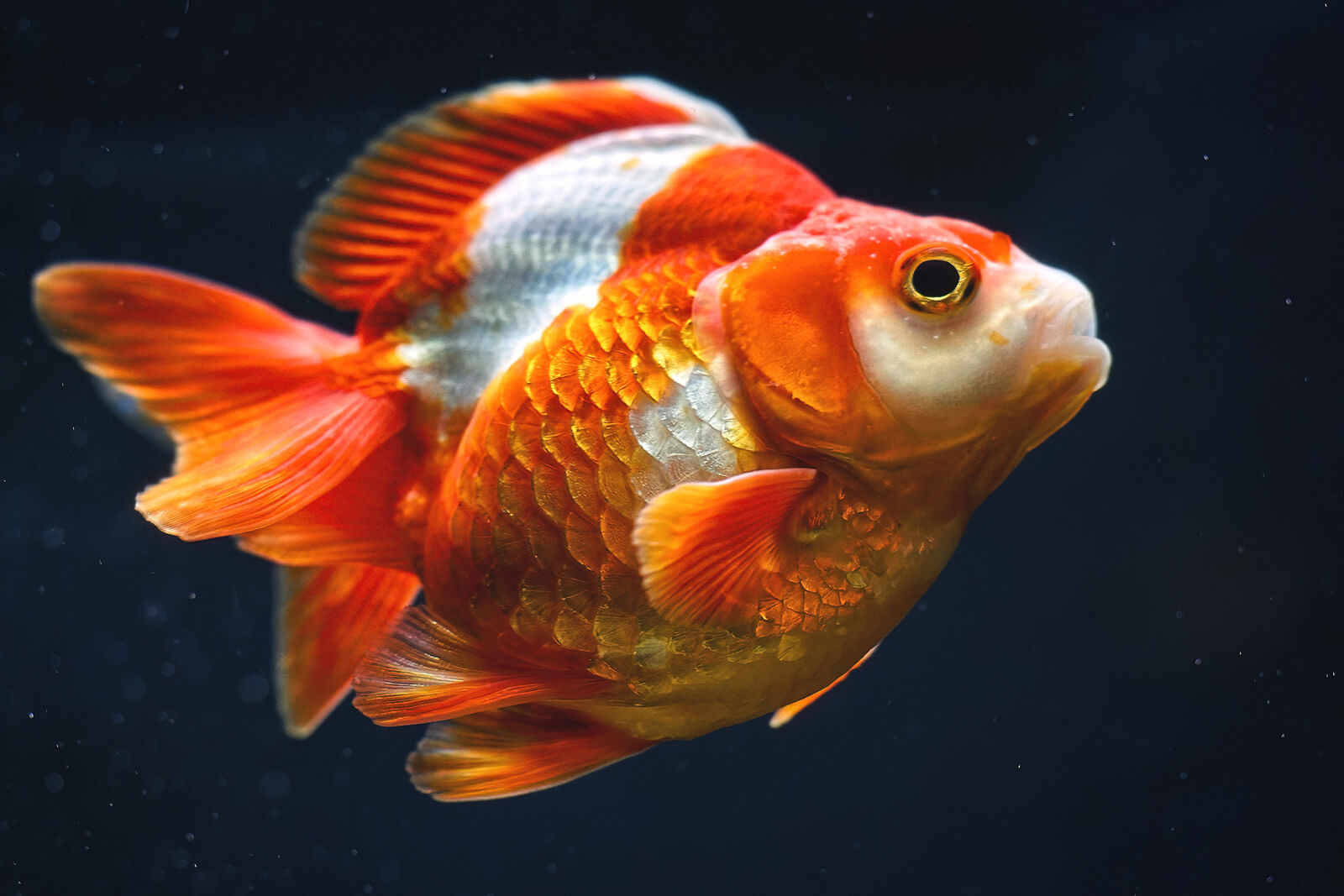
Their diet consists of specially formulated flakes or pellets. Goldfish are not aggressive towards humans or other animals. In fact, some studies suggest they can recognize human faces and develop a bond with their owners.
Don’t fear goldfish biting. They bring serenity and joy. So why wait? Let go of any misconceptions and join others who enjoy the blissful companionship of goldfish. Embrace this opportunity and let these enchanting creatures brighten up your life!

